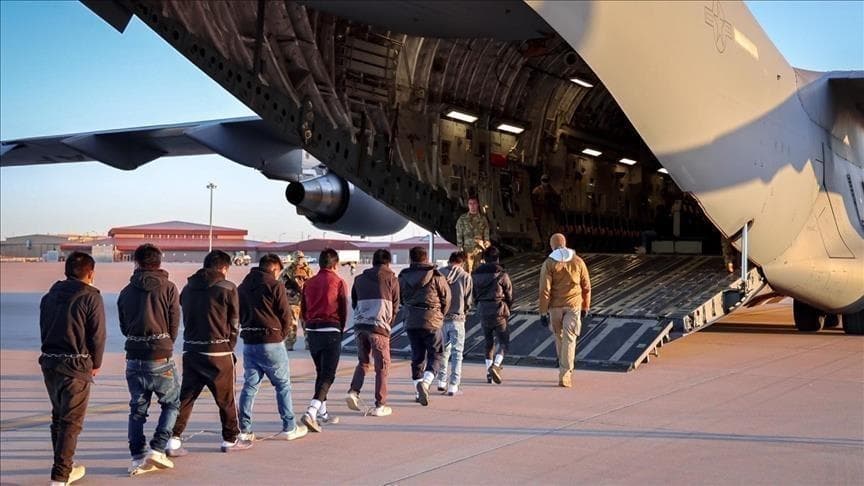We're loading the full news article for you. This includes the article content, images, author information, and related articles.
The case of Chanthila Souvannarath raises global questions about executive power and the rule of law after US immigration officials ignored a judicial order, sparking condemnation from civil rights groups.

WASHINGTON D.C. – United States immigration authorities have deported a 44-year-old man to Laos in direct defiance of a federal court order that explicitly blocked his removal, according to his legal representatives. The case, which centres on Chanthila “Shawn” Souvannarath, has ignited a significant debate over the rule of law and the powers of government agencies, a matter of international resonance, including for nations like Kenya where the separation of powers is a cornerstone of governance.
On Tuesday, 28 October 2025, the American Civil Liberties Union (ACLU) of Louisiana confirmed the deportation, labelling it a “stunning violation of a federal court order”. [4, 5] Just days earlier, on Thursday, 23 October 2025, Chief U.S. District Judge Shelly D. Dick had issued a temporary restraining order to prevent U.S. Immigration and Customs Enforcement (ICE) from removing Souvannarath. [5] The judge found that he had a “substantial claim of U.S. citizenship” and would suffer “irreparable harm” if deported, as he would be unable to effectively litigate his case from Laos. [3, 7] In her ruling, Judge Dick, an appointee of former President Barack Obama, wrote, "Though the government has an interest in the enforcement of its immigration laws, the potential removal of a U.S. citizen weighs heavily against the public interest". [3, 9]
Mr. Souvannarath's claim to citizenship is rooted in his unique life history. He was born in a refugee camp in Thailand to Laotian parents and entered the United States as a lawful permanent resident before his first birthday. [4, 7] His attorneys argue that he automatically derived citizenship as a minor when his father, a native of Laos, became a naturalized U.S. citizen and gained sole custody of him, meeting the legal requirements for derivative citizenship at the time. [5] “I continuously lived in the United States since infancy,” Souvannarath wrote in a letter from detention, “and I have always considered myself an American citizen.” [3, 6]
Despite this long history, ICE detained Souvannarath on 18 June 2025, during a routine annual check-in in Alabama, where he lived with his family. [5, 6] He was subsequently held at a controversial new ICE facility, known as Camp 57, located within the Louisiana State Penitentiary at Angola. [5] It was from this facility that he was removed from the country.
Confirmation of the deportation came directly from Souvannarath himself. On Sunday, 26 October 2025, he sent a WhatsApp message to his wife, Beatrice Souvannarath, informing her he was in Dongmakkhai, Laos. [3, 4] “It is very unfortunate, especially for the children that we have together,” she told the Associated Press. [4, 7]
The action by ICE, a federal law enforcement agency under the Department of Homeland Security, drew swift and sharp condemnation. [8] Alanah Odoms, executive director for the ACLU of Louisiana, stated that ICE “just ignored a federal court order and tore yet another family apart”. [3, 4] She added, “This administration has shown it will ignore the courts, ignore the Constitution and ignore the law to pursue its mass deportation agenda, even if it means destroying the lives of American citizens.” [5, 6] Bridget Pranzatelli, a staff attorney at the National Immigration Project, echoed these concerns, stating, “This should alarm everyone. Federal agencies cannot simply ignore the other branches of government.” [5] As of Wednesday morning, EAT, neither ICE nor its parent agency, the Department of Homeland Security, had issued a public comment on the matter despite multiple media inquiries. [3, 4]
While this case is specific to the United States, it highlights a broader global trend of tension between executive government actions and judicial oversight, particularly concerning immigration. The U.S. government has been increasing pressure on several Southeast Asian nations to accept deportees. [21, 22] Although Laos does not have a formal repatriation agreement with the U.S., it has recently been issuing more travel documents under pressure. [14] This case is set against a backdrop of wider clashes between the U.S. administration and the courts over immigration policies. [6] The principle of a government agency being bound by court orders is fundamental to democratic systems worldwide. When an executive body appears to bypass the judiciary, it raises critical questions about accountability and the protection of individual rights. Legal experts suggest that such actions can undermine the integrity of the entire legal system, a concern relevant to any nation upholding a constitutional democracy. The temporary restraining order issued by Judge Dick was set to expire on 6 November 2025, but the deportation was carried out well before that date, leaving the next legal steps for Souvannarath's attorneys uncertain. [10, 19] FURTHER INVESTIGATION REQUIRED.
Keep the conversation in one place—threads here stay linked to the story and in the forums.
Sign in to start a discussion
Start a conversation about this story and keep it linked here.
Other hot threads
E-sports and Gaming Community in Kenya
Active 9 months ago
The Role of Technology in Modern Agriculture (AgriTech)
Active 9 months ago
Popular Recreational Activities Across Counties
Active 9 months ago
Investing in Youth Sports Development Programs
Active 9 months ago